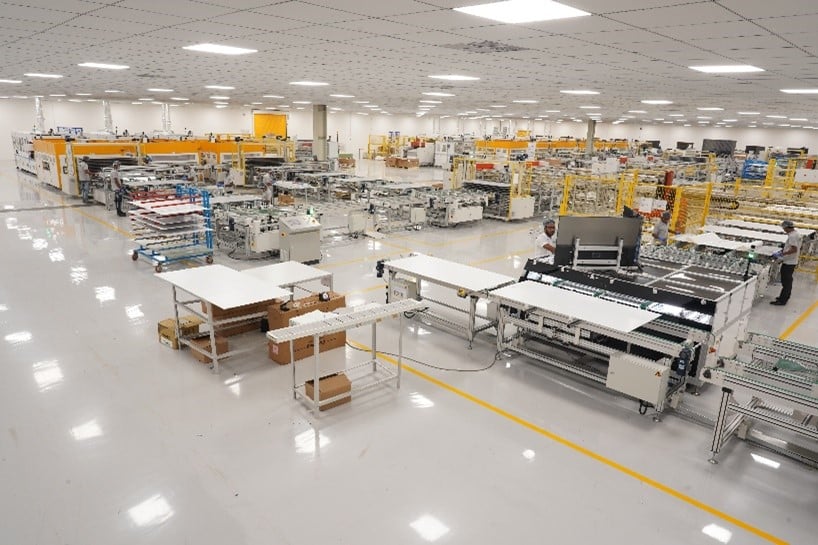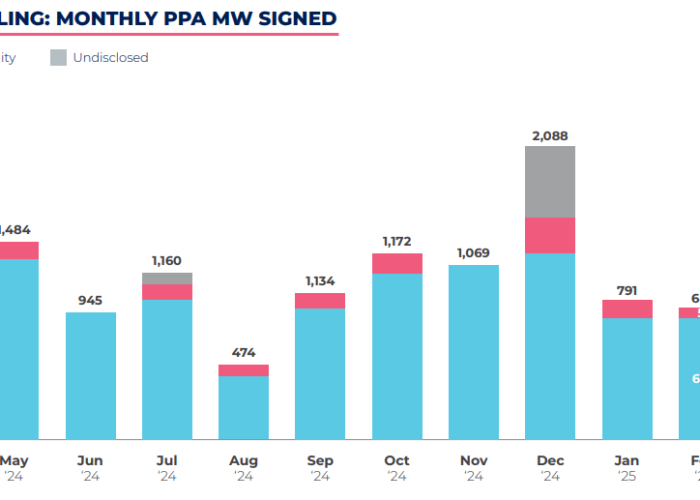
Three Indian manufacturers are said to be eyeing up investments in their solar manufacturing capacity as efforts to take advantage of protective measures and financial supports ramp up.
Reports in local press earlier this week suggested that India-based module manufacturers Vikram Solar and Waaree are considering the launch of initial public offerings (IPO), both aimed at raising around US$200 million, in a bid to finance new module manufacturing facilities.
Unlock unlimited access for 12 whole months of distinctive global analysis
Photovoltaics International is now included.
- Regular insight and analysis of the industry’s biggest developments
- In-depth interviews with the industry’s leading figures
- Unlimited digital access to the PV Tech Power journal catalogue
- Unlimited digital access to the Photovoltaics International journal catalogue
- Access to more than 1,000 technical papers
- Discounts on Solar Media’s portfolio of events, in-person and virtual
Or continue reading this article for free
Neither company responded to requests for comment by PV Tech this week.
The news came just a week after Delhi-based glass manufacturer Asahi India Glass and Vikasha Group, based in Ahmedabad, announced a joint venture to establish a solar glass manufacturing facility in Gujarat.
The facility, expected to be commissioned within the next 18 – 24 months, would have an initial manufacturing capacity equivalent to fulfil the glass necessary for around 3GW of solar modules, the companies said.
While Vikasha has experience in producing various components for solar modules, including frames, encapsulants and backsheets, the move would represent a diversification of Asahi into the solar glass market having historically focused on other glass segments, specifically the automotive sector. Asahi professes to currently supply around 70% of India’s domestic car manufacturing glass demand.
The expansions come as India is in the process of recalibrating its policy environment in order to stimulate more domestic investment in solar manufacturing. While safeguard tariffs on solar imports expired last week, essentially creating a window where overseas manufacturers can export to India without tariffs, a basic customs duty (BCD) is to come into force from 1 April 2022, levying duties of up to 40% on solar cells and modules.
The BCD, alongside a production-linked incentive (PLI) aimed at financially supporting manufacturers establishing new facilities in the country, is fully intended to revitalise India’s domestic solar manufacturing sector and reduce the dominance of Chinese manufacturers as the country prepares for a significant upscaling of solar PV deployment.
Last month RK Singh, India’s Minister of Power and New and Renewable Energy, told an industry event that it was “unhealthy” for Chinese manufacturers to dominate solar manufacturing, arguing that bases outside of China were necessary to reduce the risk of supply chain disruptions.
While Vikram Solar opened a new 1.3GW module manufacturing facility in Tamil Nadu last month, the first of a number of expansions lined up for the state, US thin film solar manufacturer First Solar also unveiled plans to open a 3.3GWdc module facility in the country, but stressed the expansion was subject to it receiving “satisfactory” incentives.







